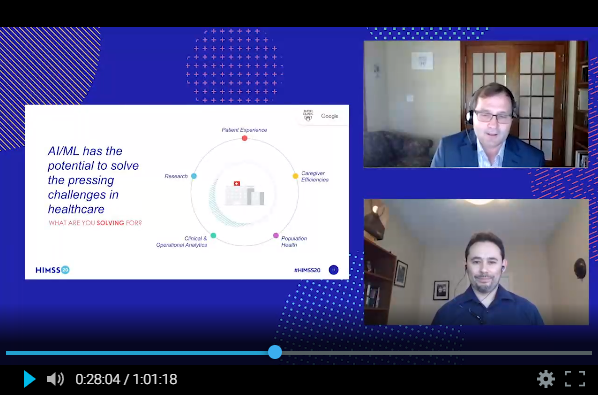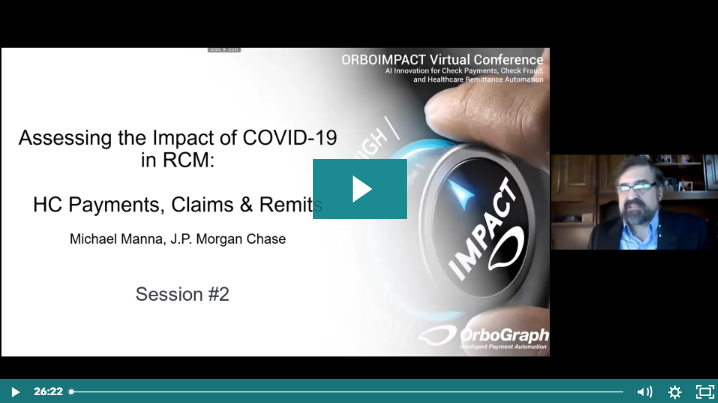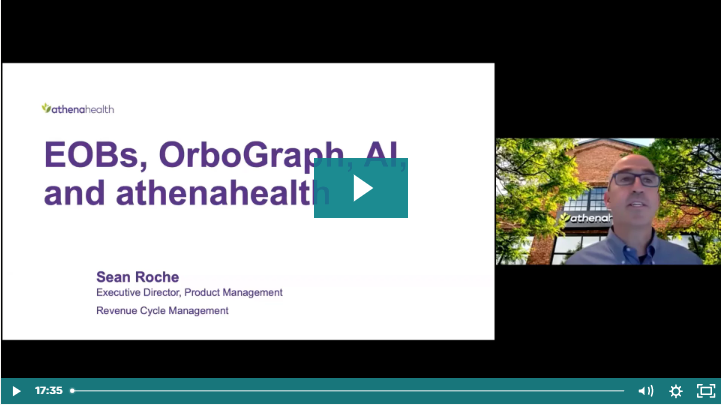Mayo Clinic & Google Partnership: Collaborating for Healthcare Innovations
In a recent post, we noted that the COVID-19 Pandemic has accelerated healthcare's digital transformation. While many healthcare organizations were already in the midst of technological innovation projects, the pandemic became the "catalyst" to speed up the process.
This was certainly the case when it comes to the partnership between the Mayo Clinic and Google, announced in September of 2019. With the partnership in its infancy, the two organizations were facing an unprecedented challenge. As Healthcare IT News reports reports:


"Like the rest of the world, Mayo Clinic has found itself tested and challenged by the pandemic and its ripple effect – but has also embraced the moment as an inflection point, a powerful moment to push forward with an array of new use cases to drive quality improvement, streamline efficiency, and boost the health of patients and populations in the years ahead."
"COVID-19 has forced us to collaborate much faster and advance to many more cloud functions than we probably would have without the pandemic," said John Halamka, President, Mayo Clinic Platform.
In a complementary HIMSS Learning Center presentation entitled The Investment from the Ground Up: What It Takes to Prime a Healthcare Organization for AI and ML, speakers from both the Mayo Clinic and Google provide viewers with details on their partnership and offer tips and best practices for the infrastructure innovation needed for this new era of patient experience and population health management. Topics include:
- Recognize how high-impact healthcare use cases, including around COVID-19, illuminate the need for technology to improve the health of people—and entire communities
- Demonstrate how technical advancements help put the patient first
- Identify the investment from the ground up: what it takes to prime a healthcare organization for AI and ML
The HIMSS20 presentation shines a light on the need for the healthcare industry to continue to innovate, especially during these unprecedented times. During Day 1 of our ORBOIMPACT Virtual Conference, Keynote Speaker Michael Manna of JPMorgan Chase touched upon four key areas that were impacted by the pandemic during the session Assessing the Impact of COVID-19 on RCM:
- Manageing (reconcile -- report) block payments and grants
- Re-evaluating claims management
- Impact of Telehealth
- Planning for long term remote work (work from home)
The Importance of Partnering with the Right Technology Company
We would be remiss if we did not point out the importance of the partnership between the Mayo Clinic and Google. As noted by Halamka, "Mayo's work with Google Cloud is already enabling big new opportunities for cooperation and collaboration."
This point was affirmed by James D. Buntrock, vice chair of IT enterprise technology services at Mayo Clinic, noting that after an internal review of the Mayo Clinic's current deployments:
"To our surprise, we identified more than 200 activities that were using some sort of AI or machine learning methodology," he said.
Mostly those were in places one might expect, he explained: imaging, digital pathology, cardiology and genomics.
But since then, enabled by both "advances around compute and AI methods themselves," the health system has "continued to expand [its] interest in applying AI techniques to complex problems," Buntrock said.
This was also an important factor for athenahealth -- as noted by Sean Roche of athenahealth during the Electronification Deployments session at ORBOIMPACT -- when evaluating a technology partner to help electronify the 35M paper-based remits and EOBs/EOPs processed by athenahealth.
With the announcement of the COVID-19 vaccine approval by the FDA, we are optimistic that we are turning a corner from challenging times. But most challenges come with silver linings. Going forward, said Halamka, "I have great confidence that, coming out of this pandemic, we're going to be using cloud-hosted services to share data – and observations and wisdom – more frequently than ever."


